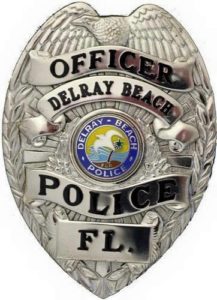
Our national dialogue is fraught.
The Future of Policing: Relationships
To Walk In Their Shoes
A Reminder
 Before we in Florida turn the page on Hurricane Matthew there are a few lessons to learn or relearn.
Before we in Florida turn the page on Hurricane Matthew there are a few lessons to learn or relearn.
We were fortunate–this time.
But only has to look at Haiti and North Carolina to see how dangerous nature can be and how a storm can alter a community or a nation forever.
I had the unique experience of being mayor the last time we were hit by a major hurricane.
So I had a bird’s eye view of our city’s response to a series of storms that did hit us in 2004 and 2005. Wilma was the worst. But the others took a toll as well.
People lost roofs and homes, power and their patience. Business was disrupted and many communities were left with an immense amount of debris and residents desperately in need of food, water, ice and prescription medications.
It was a major challenge. And I was incredibly impressed with our city’s response.
We were ready. And city staff did a great getting the city back on its feet.
Our fire and police departments were stretched to the max but performed magnificently–keeping neighborhoods safe, responding to emergencies and quickly assessing damage in every nook and cranny of the city.
Our Parks, Public Works. Code Enforcement and Environmental Services departments rose to the occasion: clearing roads, removing debris, ensuring that lift stations worked and managing critical infrastructure.
The city manager and department heads working out of the Emergency Operations Center at the Fire Department showed poise and exhibited exemplary team work.
They were ready and it showed.
Training, table top exercises and policies in our Comprehensive Plan that addressed natural disasters enabled our city to get back on its feet.
I feel the need to revisit the past because of statements made at last week’s commission workshop which included a debrief of the storm. At the meeting, the mayor repeated several times that the city never had a “coherent” emergency plan in place until now. He’s wrong.
We did. And it needs to be said because it’s disrespectful to past managers, chiefs and rank and file staff to suggest we didn’t.
Personnel did not panic or run around cluelessly. They performed professionally, indeed heroically in many cases.
How do I know? Because I was there –for all of the storms. The current mayor was not.
If there is a better plan in place today hallelujah and congratulations. There should be a better plan in place today than in 2004-05 or in 1992 when Andrew threatened us before heading south. We are supposed to learn from experience and apply new knowledge to challenges.
But it is not necessary to disparage in order to progress. I felt the need to say that after hearing from a few retirees who let me know about the comments. They didn’t like them because they are professionals and they took pride in protecting our city. And guess what? They did. Very well I might add. Extremely well.
We caught a break this time. Eleven years ago we didn’t. And staff worked around the clock to get us back on our feet. It wasn’t easy. It was hot and it was stressful. But they knew what they were doing. We were proud of their efforts, very proud and residents were grateful. I hope that was a coherent response.
Ok, onward and upward.
Now –11 years of experience and know how later–I’m not surprised that we remain prepared. If buildings need to be built or improved just do it. It’s a good investment.
FPL is also better prepared as result of a decade of investment and technology and local businesses seem to have also heeded the call with generators and planning which enabled them to restock shelves and replenish gas supplies quickly.
It seems like many homeowners have also stepped up adding better shutters and buying generators.
But…
Many people didn’t heed the call to evacuate. Endangering themselves and first responders.
Many people struggled with decade old shutters (guilty) because they weren’t used or maintained over the years.
And I ran across a few people who seemed oddly disappointed that the storm missed us.
They complained about how hard they worked to get ready only to see the storm pass us by.
Whoa!
We won’t always be lucky. I hope we realize that.
So prepare anyway.
And take comfort that we’ve met the challenge before and we will again.
We’re Asking Too Much Of Officers
It’s Monday morning.

